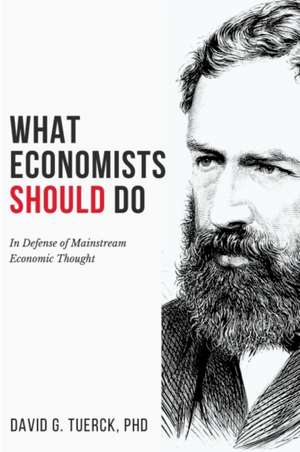What Economists Should Do
Autor David G Tuercken Limba Engleză Paperback – 21 iun 2022
Preț: 138.30 lei
Nou
Puncte Express: 207
Preț estimativ în valută:
26.47€ • 28.76$ • 22.25£
26.47€ • 28.76$ • 22.25£
Carte disponibilă
Livrare economică 31 martie-14 aprilie
Preluare comenzi: 021 569.72.76
Specificații
ISBN-13: 9781637422328
ISBN-10: 1637422326
Pagini: 148
Dimensiuni: 152 x 229 x 8 mm
Greutate: 0.23 kg
Editura: Business Expert Press
ISBN-10: 1637422326
Pagini: 148
Dimensiuni: 152 x 229 x 8 mm
Greutate: 0.23 kg
Editura: Business Expert Press
Notă biografică
David G. Tuerck is President of the Beacon Hill Institute, a Massachusetts economic research organization that specializes in modeling tax law changes. He is also Professor Emeritus at Suffolk University in Boston, where he served on the Economics faculty for 38 years. He received his PhD in economics from the University of Virginia. Before joining Suffolk, he worked as a director in the economic consulting practice at Coopers & Lybrand in Washington DC. During his tenure at Coopers & Lybrand, he served as a consultant to the U.S. Treasury on modeling the Reagan tax policy proposals. He has published in the academic literature and testified before Congress and state legislatures on numerous occasions and on a number of public policy issues.















